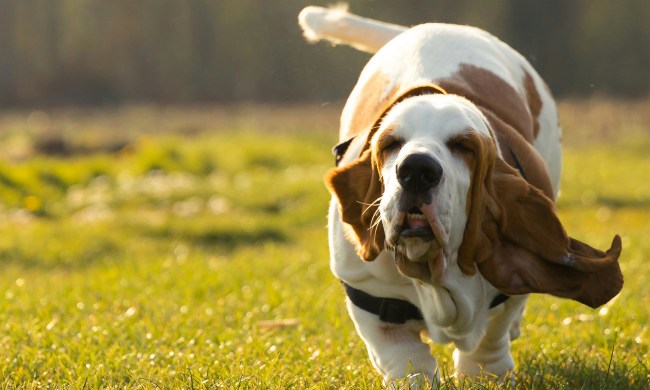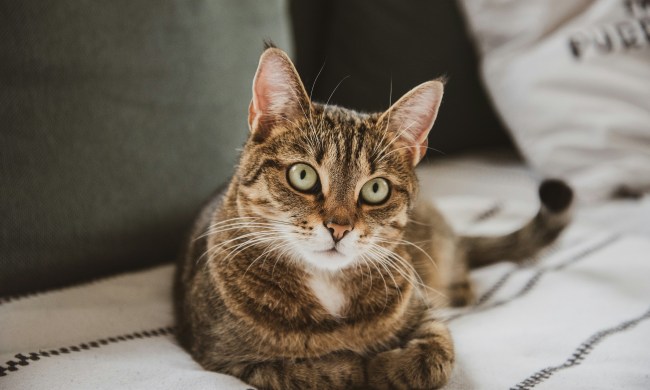Animal friendships come in all shapes and sizes — cats and dogs, the fox and the hound, dogs and… tortoises?
Why not? The unlikely friendship between a tortoise and a pup has charmed redditors, and we understand why; it’s just the sort of wholesome, adorable content we all need.
Every day this wiggly pup brings his bestie, the tortoise, his favorite toy of the day
byu/JMyers666 inEyebleach
Watch as this excitable little puppy brings their friend, tortoise Tilly G, a new toy each and every day. While Tilly G is (understandably) not nearly as amused as their friend, the pup doesn’t seem to mind. As Redditor misabine put it, this dog is “so excited to show off his toy that his entire body is wagging.”
If that’s not enough for you, Tilly G has a lot more canine friends — all of whom are featured on the tortoise’s Instagram account.
One day these dogs are sure to find the toy that will finally spark joy in Tilly’s heart. (And until then, we get to watch cuteness overload.)
Is a tortoise right for you?
There’s a lot for you to consider before adopting a pet tortoise.
- Tortoises live a long time. Sulcata tortoises (like Tilly) have a life span of 70-100 years. This means you’ve likely got to think about who will take care of your pet after you’re gone.
- Tortoises need tons of space. If they can be kept outside, that’s best, but older tortoises need a safe environment that is at least 4 ft. by. 2 ft. And Sulcata tortoises need even more space (think 20 ft. by 20 ft.).
- Tortoises need warmth. While tortoises shouldn’t get too much direct sunlight (especially in summer), they typically need a warm spot (95 degrees) and a cool spot (75 degrees). Nighttime temperatures shouldn’t drop below 60 degrees.
- Tortoises are mostly herbivorous. Ninety percent of Sulcata tortoises’ diets consist of grass. They can be fed other greens, fruits, and veggies, but should never be fed citrus fruits, meat, grains, or dog or cat food.
Can dogs and tortoises really be friends?
Thinking about a tortoise but unsure if they’ll get along with your other pets? The answer: It depends.
Some dogs will happily coexist with tortoises. Others will use your pet tortoise as a chew toy. As with any other new pet, it’s important to suss out your dog’s feelings about your new tortoise: Are they growling and barking at the new arrival? Are they showing other signs of anxiety and aggression?
If so, it’s important to train your pets like you would any other animal. They may not become the best of friends, but you can hopefully teach them to peacefully coexist. Puppies and younger dogs will be easier to train.
Some tips for training include:
- Use a fake tortoise. Before introducing your pets, let your dog get used to a plastic tortoise first. Monitor their behavior and interactions with the fake.
- Make use of command training. Reinforce the lessons your dog has learned to be sure they’ll listen to you.
- Do what you can to keep both pets calm. Introduce them after they’ve been fed, for example, and only when they’re relaxed and happy.
- Supervise. Even if they seem friendly, make sure you (or a trusted adult) are always around when they’re together.
Can tortoises and dogs coexist together? Absolutely — Tilly G and friends prove it. However, before introducing a tortoise to your home, be sure you’ve got everything you need for their care and that any other pets they’ll interact with are well-trained. (And if you’re still unsure and don’t want to risk it, there’s always Tilly’s Instagram.)


